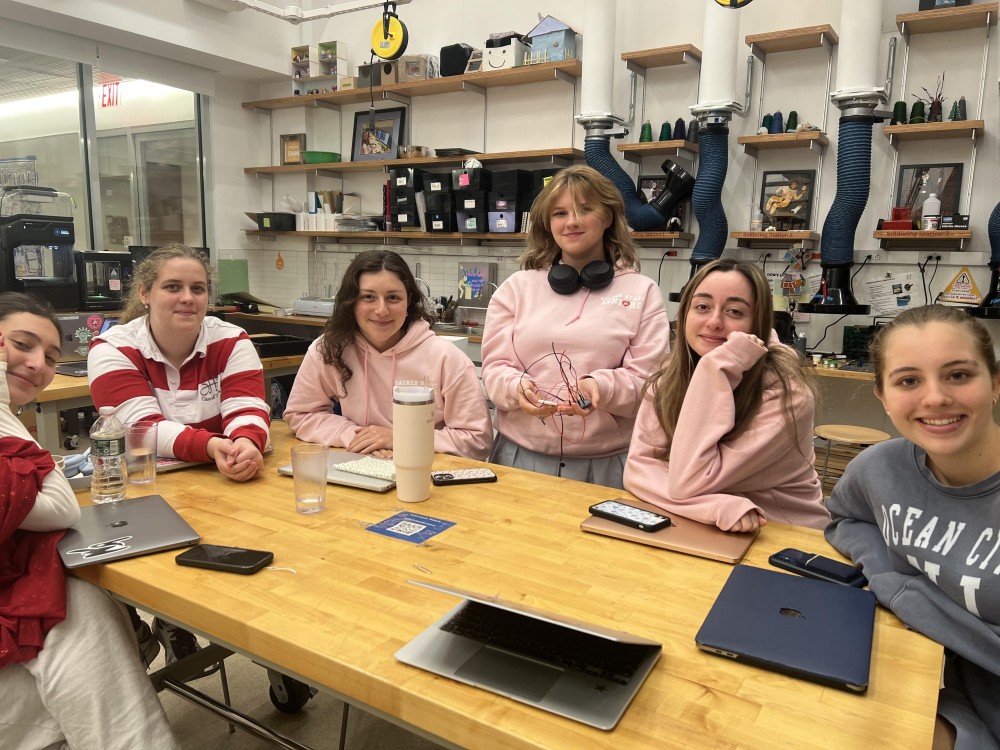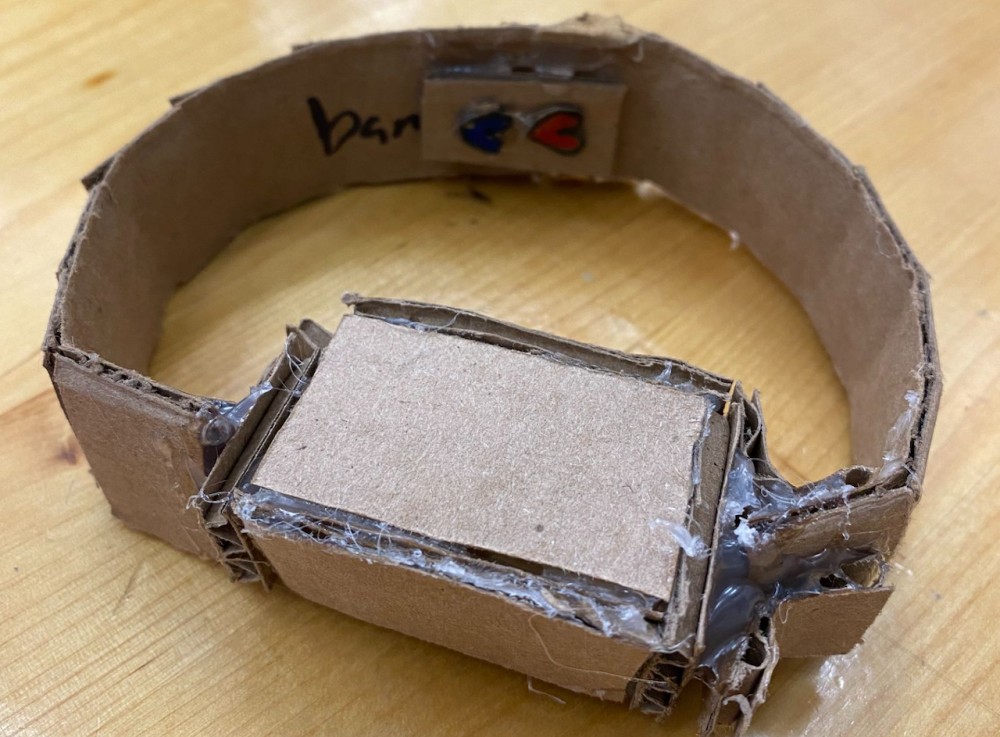
UPPER EAST SIDE — Survivors of human trafficking may have escaped lives of forced labor, servitude, or even violent sex slavery, but post-traumatic stress can persist.
One woman called “N.M.” — a pseudonym — now has a job in customer service. She feels safe there, surrounded by co-workers, but dealing with customers by herself sometimes “triggers” anxiety.
N.M. fears people like those who once controlled her could come to drag her back into the pipeline of people confined to modern-day slavery.
Stories like hers dismayed a dozen students from the Convent of the Sacred Heart all-girls Catholic school on the Upper East Side. Josephine Crisostomo, education director of the LifeWay Network, gave a presentation at the school.
So, these high school seniors resolved to help with an end-of-the-year project in their computer science and technology class.
The result is the prototype of a monitor bracelet that alerts the wearer that anxiety is on an upswing and it’s time to deploy stress-management skills or call for friendly support.
Serena Beydoun, a former student, said her team worked through the design process, beginning with more conversations with Crisostomo.
“We came up with a list of questions to ask her, and then we started identifying problems,” Beydoun said.
The most compelling ones, she said, were stress and anxiety.
“These women have obviously been through a lot,” Beydoun said. “Now, there is lasting trauma and PTSD, which leads to panic attacks.”
Sister Joan Dawber, a Sister of Charity-Halifax, founded the group in 2007. Based in Westchester County, it provides safe housing and healing programs for human trafficking survivors in the New York City area.
Crisostomo told the class that LifeWay’s clients, like N.M., come from all over the world and from all socioeconomic backgrounds, even affluent families.

“Anyone can be put in that situation, depending on life circumstances,” Crisostomo said. “Understanding that this can affect them or someone they know, I think, was a shocker to them.”
The students’ questions impressed Crisostomo.
“They went from just being curious to now wanting to advocate,” Crisostomo said. “You can tell that it was from the heart because they wanted to genuinely help and find a genuine solution.”
Next, the team explored how a technological device could help ease a survivor’s anxiety. They subsequently devised the bracelet with a heart rate monitor and a cooling pad, which offers a calming sensation.
Lauren Mitchell, their teacher, explained that she had assigned them to develop a product controlled by an Arduino microcontroller.
“It’s a small computer that they had to program and connect it to different types of sensors,” Mitchell said. “So, they had to identify what types of sensors they wanted to use, and then they wrote the code to make it all work.”
Mitchell said the team endured setbacks during the test phase but ultimately succeeded.
“It’s a pretty impressive project,” she said. “I’m biased, but I think they’re extremely talented. And I’m very proud of them.”
LifeWay Network protects its clients by not publicizing their names or the addresses of the safe houses — hence, the pseudonym for N.M., who praised the work of the students and said she thinks a product like their bracelet could help her manage anxiety.
Mitchell said she would soon deliver the prototype to LifeWay for clients to use. She added that her team’s budget and available time ran out before they could figure out how to mass produce and market the design.
The students have since graduated and are college-bound. Beydoun will study art history at St. Andrews University in Scotland.
Still, she said the computer technology class has shown her not only the possibility of writing code to make a living but also how to help others via her Christian faith.
“To me and my religious beliefs, I think it’s always important to think about how we can help people, whether it be with coding or whatever,” she said. “But with this project, there was a clicking moment when I realized, ‘Wait, I’m making a bracelet that’s going to help somebody de-escalate their anxiety.’
“It was an amazing realization.”
